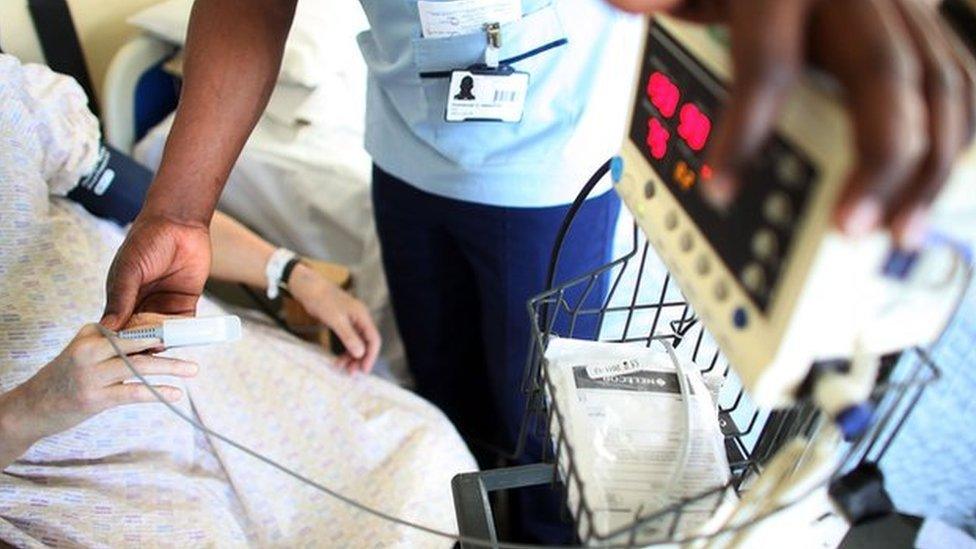An inspector calls: Behind the scenes with the NHS watchdog
- Published
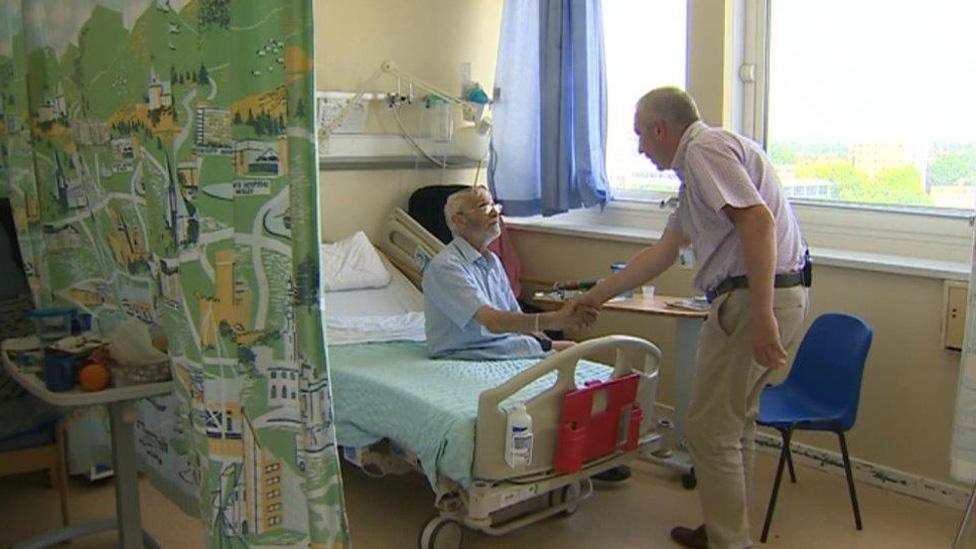
The inspection team also meet patients during their visits to hospitals
Every year, teams of inspectors keep an eye on the care offered by GPs, opticians, dentists, mental health services and even tattoo laser removers across Wales.
Health Inspectorate Wales (HIW) makes more than 300 visits a year spot-checking NHS care.
While stories often hit the headlines about when care goes wrong, how do the inspectors make sure things go right?
BBC Wales joined them on a visit to the University Hospital of Wales, Cardiff.

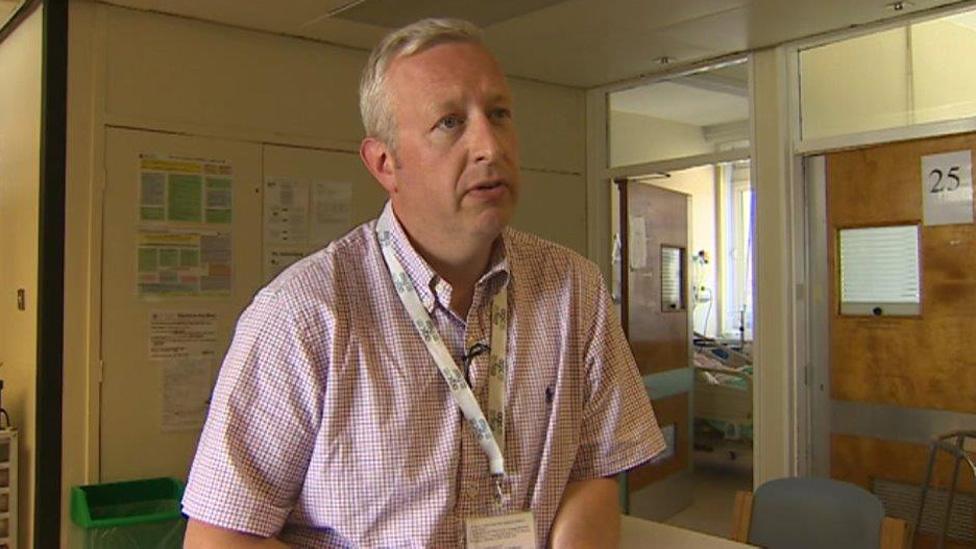
Gerallt Jones says safe and effective care is the bottom line in inspections and unsafe practices are flagged-up immediately
What is it like being an inspector?
Gerallt Jones, HIW review manager takes specialist inspection teams into hospitals, as well as lay patient representatives.
"It is a bit of a jigsaw but as you walk into a ward you get a feel for the environment pretty quickly," he said.
"Is there tension? Are there sufficient staffing levels? And it might raise issues that merit further investigation."
The inspectors look at a range of documents to spot any potential problems and unsafe practices are flagged-up immediately.
"I think by the nature of the work, staff hear the word 'inspection' and immediately get pensive when you turn up, but after we've discussed why we're here and what we're going to look at, it puts patients and staff's minds at rest," he said.
"We give feedback to the ward manager. Then go back the senior leadership of the health board connected to the ward, then give our feel of the inspection, but also include recommendations for improvements to abide to health and care standards."

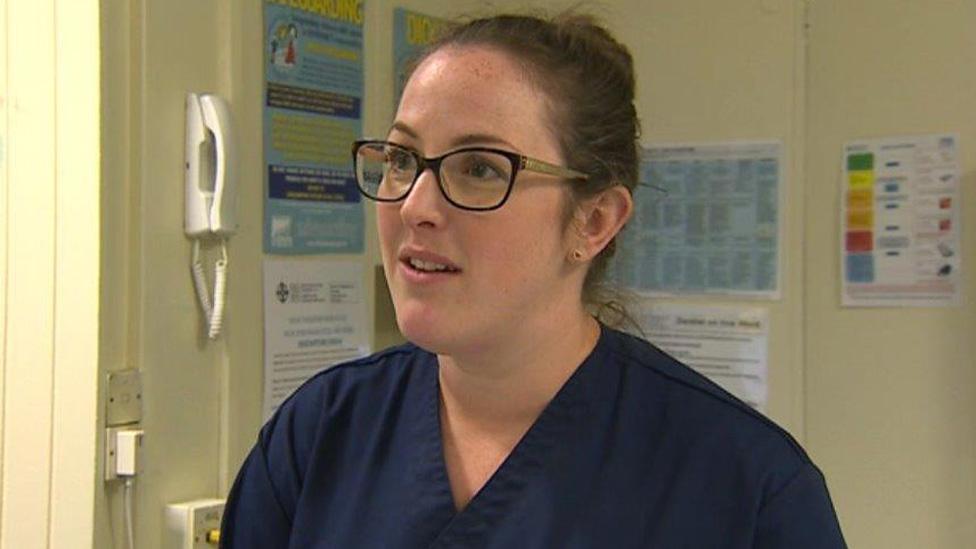
Helen Bonello, ward sister, University Hospital of Wales in Cardiff, said she welcomed the inspections
What is the experience like for hospital staff?
Helen Bonello, ward sister, at the University Hospital of Wales in Cardiff said while they already have internal checks in place and are always looking to improve patient safety, she welcomes feedback.
"Running a busy, full ward like this one, you've got to have checks and balances: the right medication, the right food etc," she said.
"But it's nice to have a fresh pair of eyes on things sometimes, to have people looking at something in a different way."

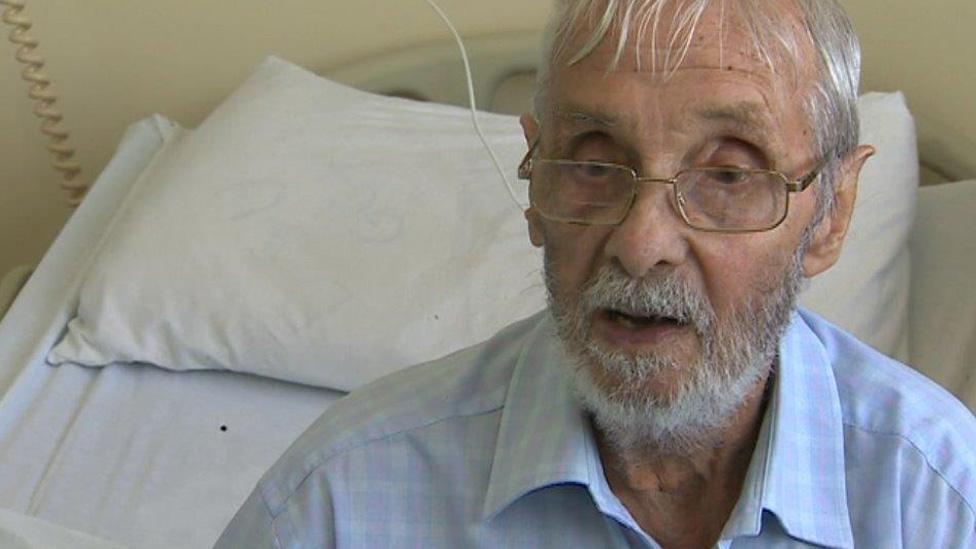
What about patients?
Mac Rawlinson, an elderly patient with osteoporosis was asked about his care on the ward - and everything from the food quality to information about his treatment.
"It's not the biggest ward, but I've got to be careful and I try not to get in people's way. It's nearly always busy," he said.
"The staff have been excellent, I've got a bell - I'll ring that. There's always room for improvement but they do very well here."

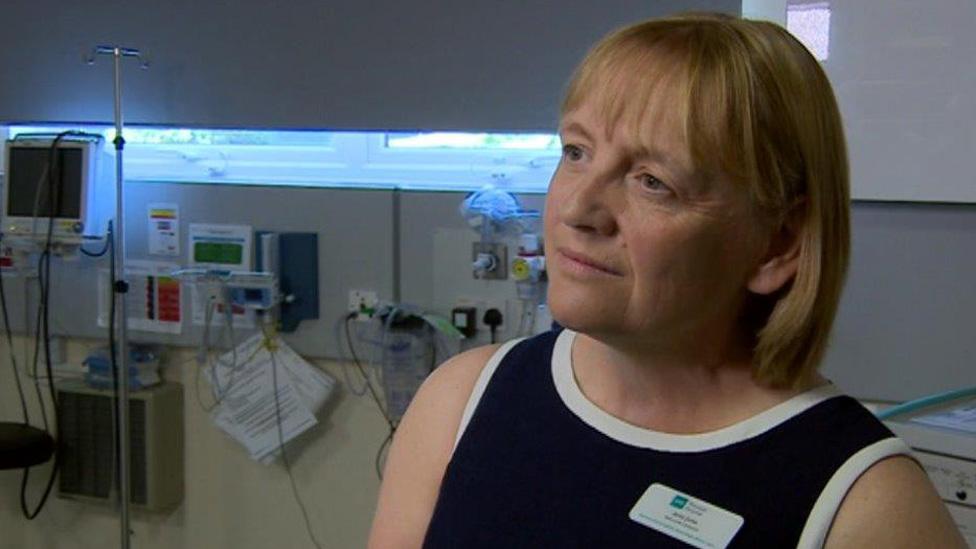
What about the private sector?
Jackie Jones, executive director at Werndale Hospital, a 27-bed private hospital run by BMI Healthcare in Carmarthen.
She said they were always ready for the inspectors, who would check everything from theatres, to leadership and governance.
"There have been two inspections since I've been here and they've always been positive," she said.
"They come and work with us for a couple of days, talk to our patients and staff, because it's one thing for me to say this is what happens in the hospital, but you have to talk to staff to find out what's happening in the front line," she said.
"We're a business which rises or falls on our reputation. That's another incentive to be as good as we conceivably can be. We're only as good as the last patient who walked out of the door who said we were excellent. There's a different type of pressure in the private sector but I spent 32 years working in the NHS - quality and safety is the same."

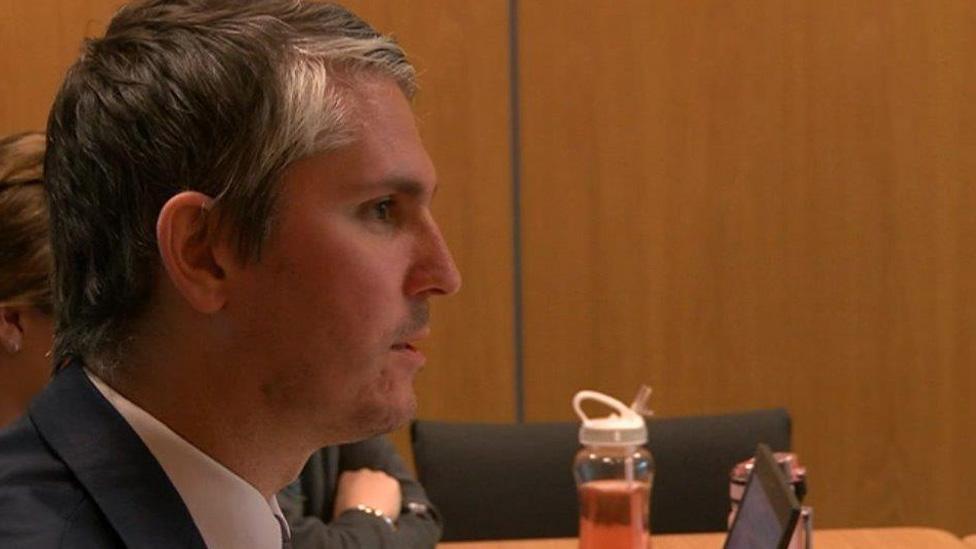
Rhys Jones says intelligence is key to point HIW where they need to go
How do investigations start?
Rhys Jones, HIW head of escalation enforcement, said concerns could come from inside the health service or members of the public.
The nature of the work is also changing, as health becomes more community-based.
"Intelligence is a key element of what we decide to do. Certainly at the start of the year, we have a plan but by the end of the year it will be drastically different," he said.
He added: "If we're sufficiently concerned about an issue affecting patients right now there's no reason we can't take action that very day.
"And the unannounced inspections are unannounced. They are what they say on the tin. The health board has no prior knowledge."
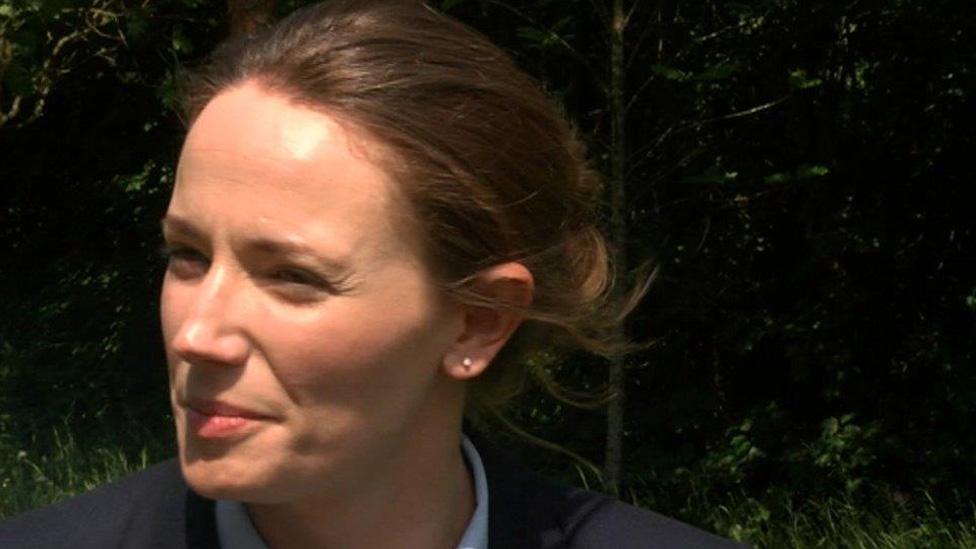
Erica Emes looks at wider issues - and special casework
What about common issues around Wales?
Erica Emes, HIW review manager, looks at particular themes which cross health board boundaries or one-off special reviews in response to incidents.
When there are serious incidents - such as deaths or murders - the Welsh Government can commission HIW to do a review.
The team are currently looking at how Abertawe Bro Morgannwg Health Board handled Kris Wade - a nursing assistant who faced sexual assault claims at work and later murdered a neighbour in 2016.
It is also looking at community adult mental health care and substance misuse to flag up differences across Wales.
"We listen to the noise in the system," she said. "We look at all the intelligence that we hold and concerns from the public and other bodies as well."
- Published14 June 2018
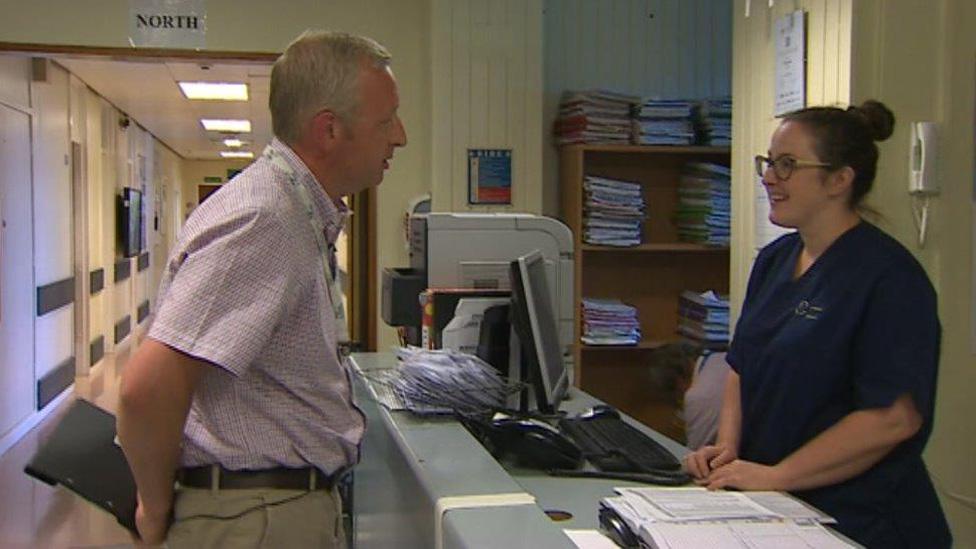
- Published29 September 2016

- Published10 November 2015
